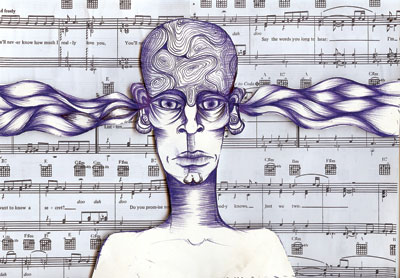All Nonfiction
- Bullying
- Books
- Academic
- Author Interviews
- Celebrity interviews
- College Articles
- College Essays
- Educator of the Year
- Heroes
- Interviews
- Memoir
- Personal Experience
- Sports
- Travel & Culture
All Opinions
- Bullying
- Current Events / Politics
- Discrimination
- Drugs / Alcohol / Smoking
- Entertainment / Celebrities
- Environment
- Love / Relationships
- Movies / Music / TV
- Pop Culture / Trends
- School / College
- Social Issues / Civics
- Spirituality / Religion
- Sports / Hobbies
All Hot Topics
- Bullying
- Community Service
- Environment
- Health
- Letters to the Editor
- Pride & Prejudice
- What Matters
- Back
Summer Guide
- Program Links
- Program Reviews
- Back
College Guide
- College Links
- College Reviews
- College Essays
- College Articles
- Back
Snap, Crackle, Pop
Pop culture is a plague. The very idea of it sends shudders down my spine. Any cultural work that is created for the masses must be nothing but shallow, vapid, and meaningless. Truly, pop culture is the herald of our society’s destruction, the very death of culture in fact. Oh, to return to simply times, when people had better tastes, that is my only desire. Yeah, that’s a load of bull. For years, decades, centuries people have been decrying the idea of pop culture in the same manner exemplified above. But because I’m no longer twelve, I feel like I can (and most people should) view popular cultural movements in a more favorable light.
What is popular culture? Well, the dictionary defines it as “cultural activities or commercial products reflecting, suited to, or aimed at the general masses of people”. There’s nothing inherently malicious in that description. If anything, pop culture serves as a way of unifying society. For instance, the article “Hip Hop Planet” deals with the history and mass appeal of hip hop, both as a genre and as a lifestyle. According to the author, part of hip hop’s prodigious rise to fame is in its mass appeal, from the low income black individuals who pioneered the style to the wealthy white audiences who enjoy it. The majority of pop culture follows the same pattern of general adoption across all backgrounds. In a way, pop culture has this mysterious ability to tie all members of a given society (maybe even the world) together in a loose sense of community regardless of income, race, or creed.
Next less address the critics, the naysayers who boldly proclaim that Miley Cyrus and similar celebrities are poisoning the youth. First of all, they need to get over themselves. Those same parents who slander today’s pop stars are clearly forgetting their generation’s controversies. Say anything you like about Ke$ha, Miley, or Nikki Minaj, but at least none of our generation’s stars literally bit the head off of a bat.
It is also helpful, I find, to examine the concept of popular culture from a historical perspective. If you really think about it, all of the great surviving works of art and literature from the distant past survived for one reason above all else: they were popular. If Shakespeare had been an obscure, unrecognized writer, would we study his plays with the same fervor that we do today? Not likely. While it is true that certain aspects of pop culture are passing fads, history shows that those works collectively known as “classics” were preserved and remembered because they has mass appeal.
I’m not exactly atypical or particularly different from anybody else. During those delightful years of puberty, I too turned against pop culture as though I was somehow above it. I’m older now, wiser. I’ve come to realize that there’s nothing inherently wrong with pop culture. There are some aspects I like; there are some parts I don’t really care for. Instead of encouraging cultural elitism like my 12 year old self did all those many years ago, I’ve learned like what I like without judging others for what they like. Maybe that’s how things should be.

Similar Articles
JOIN THE DISCUSSION
This article has 0 comments.

Cultural elitism is total wack. Life's too short to pretend not to like Taylor Swift.